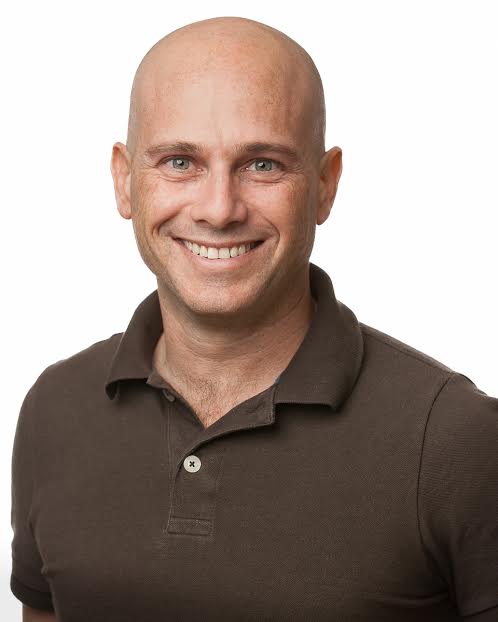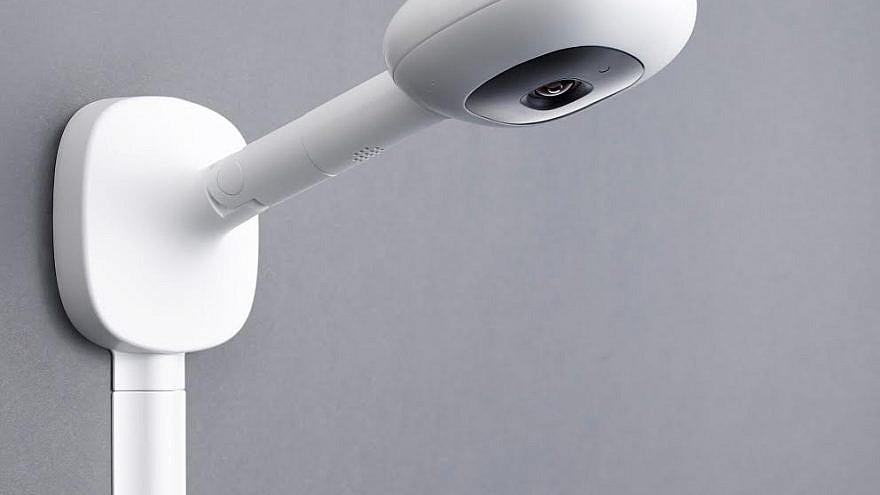“Kids who know they’re cared for and cared about have fewer behavioral problems and stronger relationships,” acclaimed author Heidi Murkoff asserts in her classic What to Expect series on pregnancy and child-rearing. Many experienced parents will agree that one of the mechanisms to such constant care, at least in the very early stages, is electronic: a baby monitor.
Indeed, one of these high-quality, new-parent “must haves” can be essential to establishing foundational trust among newborns and toddlers, as well as help ensure their safety. Although they offer a remarkable window into the nocturnal lives of infants, there has been surprisingly little innovation in this realm since baby monitors were first invented in 1937. Now, an Israeli startup company called Nanit is on the brink of revolutionizing an entire industry.
Nanit has developed a “smart” baby monitor with far-reaching practical and even medical applications. The company has brought together a “tight-knit collection of scientists, parents and designers—experts in the first beautiful months of human life,” reads the company’s website. These professionals and consultants have helped tailor sophisticated data analysis algorithms that offer an interactive and adaptive learning experience for families with young children. Part of the Internet-of-things, Nanit monitors utilize what the company calls “computer vision” to document the quality of sleep an infant receives. At the same time, a high-end night-vision camera beams real time, securely encrypted video feeds to a parent’s phone.
Parents unlock Nanit’s true promise by subscribing to Nanit Insights. For $10 a month or a $100 single payment for a year of service, Nanit’s all-seeing “Intelligent Sleep Guru” generates a detailed sleep summary on a nightly basis. Sleep scores chronicle everything from how long it takes for a child to fall asleep to the number of times his or her sleep was interrupted, in addition to the child’s overall sleep efficiency—a statistic calculated by dividing the time a child spends asleep by the amount of time he or she is in bed. Nanit Insights further assesses indoor environmental conditions such as room temperature, humidity and nursery lighting. Subscribers also receive regular video highlights that enable parents to replay important sleep milestones like the first time their baby rolls over or successfully finds self-comfort in the wake of a startling dream. Certain statistics trigger detailed personalized sleep-routine suggestions that not only help parents construct a healthy, conducive environment for their child, but also evaluate their own interactions with their babies whenever a late-night visit to the nursery proves necessary.

“The better you sleep, the better you feel—and the better you can perform,” Aaron Pollack, Nanit’s vice president of marketing tells JNS, stressing the significant health benefits that Nanit Insights presents for the entire family.
Nanit is the product of the Runway Program, hosted by the New York City-based Jacobs Technion-Cornell Institute (a collaboration between the Technion-Israel Institute of Technology in Haifa and Cornell University in Ithaca, N.Y.). According to Fernando Gómez-Baquero, director of Runway, this paradigm-shifting program is “part business school, part research institution and part startup incubator.” It offers those who have earned their Ph.D.s in the field of digital technologies a platform where academics can embrace an entrepreneurial perspective, developing state-of-the-art products and launching new companies.
“As of last summer, [Runway] has created 18 companies, raised $19.3 million in venture-capital funding and employed 80 people. Of the 18 [companies], four have operations in the U.S. and Israel,” Gómez-Baquero tells JNS.
“Not many people know that my first attempts to measure sleep with a camera were by placing a camera above my own bed at night. … It was during the time that we were expecting, and I wanted to try the technology myself before looking at babies,” Nanit’s CEO Assaf Glazer tells JNS.
His reflections on the humble origins of his venture, coupled with his experiences as a first-time parent, demonstrate the millennial generation’s budding desire to utilize smart technologies to positively influence both their daily and nightly existence. Glazer soon realized the value that sleep data presents, helping adults distinguish best practices in the bedroom and beyond.
“It was an ‘aha’ moment for me,” he says. “I wanted to make it bigger.”
Although Nanit is not a medical device, clinical applications for the collected data soon became apparent. “Sleep—and seeing what’s happening while a baby sleeps—can potentially assist in early diagnosis of global and/or individual anomalies and disorders like sleep apnea, autism and more,” states Glazer. He sees schools, hospitals and senior housing as the next potential settings where Nanit can also be successfully utilized.
“The market for smart baby monitors is growing at a rate of almost 30 percent year over year,” notes Pollack, and it is not without competitors.
One company called Owlett has developed a smart baby sock that measures a sleeping baby’s vitals and breathing to protect against Sudden Instant Death Syndrome, or SIDS, among other conditions. Pollack stresses the risk that false positives will prompt a scare when using this device, and differentiates Nanit from Owlett by acknowledging that “they are about breathing, and we’re about sleeping.”
Nevertheless, there is clear and mounting market pressure for companies to rethink classic baby-monitor technology and to apply effective data-analysis capability. Although priced at $279 for the Nanit device plus basic services, it seems likely that this sophisticated monitor certainly could gain broad acceptance.
And that, of course, will cause Glazer and his team to sleep soundly.


























